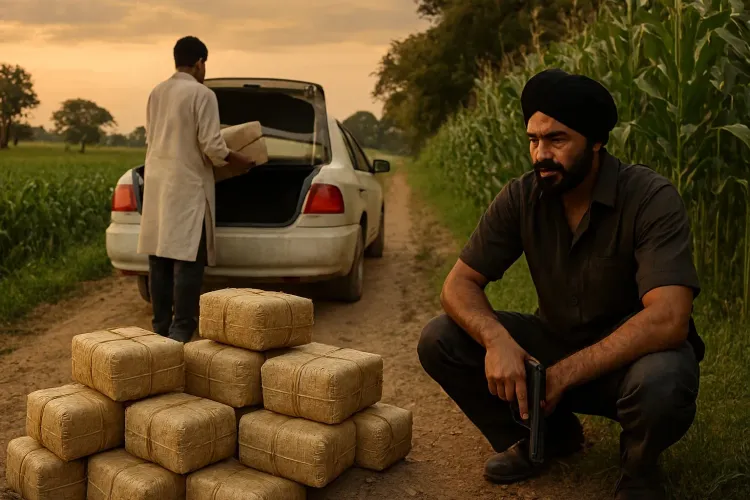Has Dawood Ibrahim's Drug Cartel Shifted Operations to Rural Areas?

Synopsis
Key Takeaways
- Dawood Ibrahim's cartel is adapting by moving operations to rural areas.
- Recent raids have revealed significant drug manufacturing operations.
- The shift poses challenges for law enforcement agencies.
- Rural areas are perceived as having less scrutiny from authorities.
- The ISI continues to provide backing for Ibrahim's operations.
New Delhi, Sep 1 (NationPress) A new strategy has emerged where the drug cartel led by ISI-supported Dawood Ibrahim has shifted operations from urban centers to rural locales. This tactic has been developing for a while and is now being implemented.
Urban regions in Maharashtra and Gujarat are no longer the primary targets for this organization. The increased surveillance and pressure in these urban environments prompted the Dawood network to consider a rural approach for manufacturing before distributing to city markets.
The D-Syndicate not only produces drugs in these rural areas but also positions them as the foundation of their distribution network. In a recent crackdown at Jagdishpura near Bhopal in Madhya Pradesh, authorities discovered a multi-crore synthetic drug facility operating under Dawood’s directives. The operation led to the confiscation of 61.20 kilograms of liquid mephedrone (MD), valued at Rs 92 crore, along with 541 kilograms of raw chemical materials.
Remarkably, the chemicals seized had the potential to manufacture enough drugs to cater to the entire nation. While a similar initiative was attempted by the D-gang in Maharashtra in 2009, this time, the ambition is to scale up significantly. The strategy is to produce drugs in the country’s rural sectors before distributing them nationally.
This operation was initiated during Dawood Ibrahim’s 69th birthday celebration in Karachi in December 2024. Dawood, who holds an honorary title of additional general for Pakistan’s ISI, introduced the concept alongside his associates. The challenges of smuggling drugs into India had escalated due to rigorous inspections and heightened border tensions.
Intelligence reports indicate that discussions during the birthday gathering revolved around the declining drug trade in Mumbai and other major cities. Manufacturing drugs in Pakistan and smuggling them into India had become increasingly complex. Both the Narcotics Control Bureau (NCB) and the Directorate of Revenue Intelligence (DRI) are on heightened alert, as reflected in the drug seizure statistics over the past year.
The D-Syndicate concluded that it would be safer to produce drugs within India and subsequently supply them to the market. Drugs produced there are also intended for export. The perception is that rural areas offer significantly less scrutiny and surveillance, making them a more viable operational base.
In recent years, Dawood has activated several modules across India. One such module in Yavatmal, Maharashtra, was established specifically for targeted killings. However, examining Dawood's history reveals he often establishes modules with dual purposes, including furthering his drug operations. The ISI has consistently supported his endeavors, as the funds he generates are a primary source for financing terrorism. For years, Dawood has maintained an agreement with the agency, reportedly giving them 30 percent of his drug trade profits in exchange for protection.
Alongside the rural network expansion, a significant focus has shifted to the southern states. This southern operation is primarily managed by Haji Salim, another ISI asset and Dawood’s associate. South India presents a lucrative market for drugs, often smuggled via Sri Lanka and further to countries like Thailand.
Recently, the southern network has yielded greater profits for the Dawood syndicate as business dwindles in its traditional strongholds in Maharashtra. However, the syndicate cannot solely depend on southern markets, prompting the establishment of rural operations to boost its northern sector activities.





